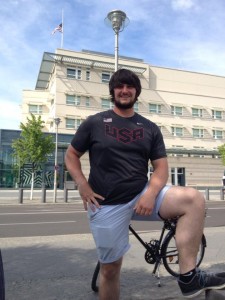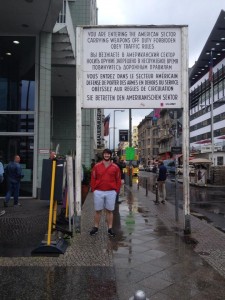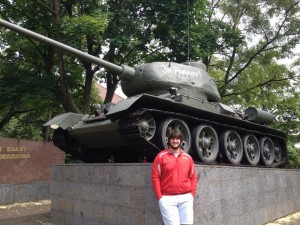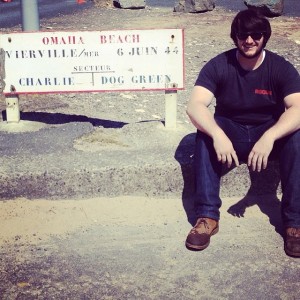The manner in which a country presents the events of World War II demonstrates its unique cultural history. After having studied the war in an American university and then toured museums in London, Normandy, Paris, and finally Berlin, I have been able to see distinct differences in the way each country perceives the war and its own role in the outcome. The United States, referring to the war as the “Good War,” has the tendency to overstate its significance in the ground fighting of the European theatre. The British focus on their initial victory in the Battle of Britain when they stood alone against Hitler. The French frequently gloss over their role as collaborators and glorify their resistance efforts.
Yet Germany looks back on the war, with solemn remembrance, and accepts its role as aggressor and enablersof the Nazi regime. Walking through the German Historical Museum, Topography of Terror, and the Sachsenhausen concentration camp, it is apparent that the German people make no effort to conceal their past. While many German people are surely not proud of their lack of resistance or support for Fascism, they do not allow the events of World War II to define them. Instead they accept their history, learn from the past mistakes, and move on as a culture.
This does not mean, however, that the German people simply forget about their actions in the war. Sachsenhausen, with its sinister past, remains as a memorial to those who died there under the S.S. and Hitler. The Topography of Terror explains the creation of the Nazi police state and the ideological decisions regarding Jews and “inferior races.” In the German Historical Museum, a large section is dedicated to those who suffered or died under the Nazi rule. Sitting in the heart of Berlin, the Holocaust Memorial silently pays tribute to the millions who perished at the hands of the S.S. School children in Germany are even required to visit a site of Nazi terror to learn of the atrocities.
In this way, the German cultural memory of World War II is inherently different than that of the other countries’ historical memories we have studied on this trip. As the defeated country, occupied by all of the Allied forces (including the Soviet Union), Germans were forced to accept their actions in the war. France, the United States, and Britain were victorious. As a result, these countries tend to highlight the positives instead of their own moral atrocities. Britain and the United States understate the enormous civilian deaths in strategic bombing across Europe. The French stress their resistance and gallant defiance rather than acknowledge their collaboration and deportation of Jews. Germany, as the defeated power, could not run from its actions and had to reconcile in order to rebuild.
Furthermore, Germany is unique in its postwar years. The division of Berlin and Germany inhibited a unified resolution until after the fall of the Soviet Union and the collapse of the Berlin Wall. Since the 1990s, the East and West German social histories have merged into a single remembrance. Today, walking through the museums of World War II and listening to the tour guides, Germany’s acceptance of the war is apparent. Yet this acceptance was necessary in order to progress as a country and move forward from their dark past.









